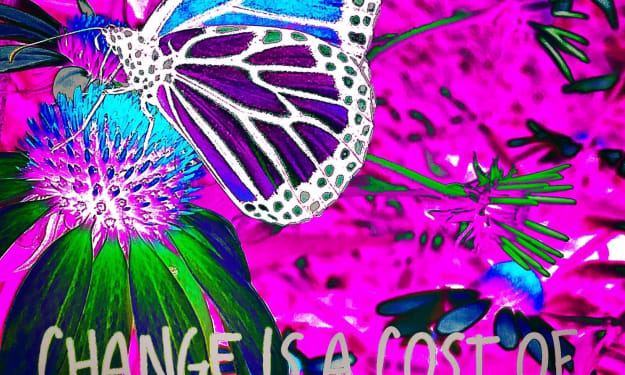Know Thyself
Living a Highly Sensitive Life as an Empath

Before you start manifesting your dreams, it’s essential that you get clear about what you want and your “Why.”
This means you need to do some inner work, which requires getting honest with yourself. Understanding your personality type, recognizing patterns of self-sabotage, identifying “stinking thinking” and freeing your mind from self-limiting beliefs, and gaining insight into your temperament will assist you in getting the clarity you need
For my entire life, as far back as I can remember, I was looking for a word to define how emotionally (and physically) sensitive I was to both internal and external stimuli… I seemed to process sensory stimulation differently than most people.
About 10 years ago, I learned of the term HSP, an acronym for “Highly Sensitive Person.” HSP’s make up about 20% of the population, in both humans and animals. This highly sensitive trait is typically identified in the rarest personality type on the Myers-Briggs scale, INFJ. HSP’s are similar to Empaths. In fact, many HSP’s identify as Empaths as well.
According to Judith Orloff, M.D., who is a Psychiatrist and an Empath, Empaths share all the same traits as HSP’s, however Empaths experience these traits to a higher extreme because they can sense subtle energy and actually absorb it from other people and environments into their own bodies. Additionally, Empaths have “profound spiritual and intuitive experiences — with animals, nature, or their inner guides,” which are not typical of HSP’s.
I earned my B.A. in Psychology in 1991, but back then the term HSP was not yet in use. In fact, Dr. Elaine Aron, who coined the term HSP, began studying the “temperament trait” in 1991 because she was keenly aware of it in herself. The technical term for this experience of “sensory overload” is “Sensory Processing Sensitivity” (SPS). Having the highly sensitive trait sets us up to thrive in certain environments, while having unique challenges in others. In other words, it is a gift and a curse, as I often say.
Even as a child, I was keenly aware I was different from most people, having felt that way for as long as I can remember. I now attribute this to my sensory experience of life as both an INFJ/HSP and an Empath.
At the young age of 11 years old I was writing poetry about heartache, loss, love, hypocrisy, death, even suicide – what did I know personally about any of that? All I knew was what I experienced and felt vicariously through others’ experiences… regardless of whether I actually witnessed it, or heard about it second hand, or simply watched a movie or read a book about it. I literally would become sick from the overwhelm I felt in response to the painful experiences and feelings of others, as if the experienced event and associated emotions were happening to me!
I had yet to actually experience life’s difficulties, but already I felt life was meant to be tragic and full of suffering for me. I couldn’t understand why the rest of the world seemed to be unbothered and unaffected by all the tragedy and suffering in the world, going about their lives as if nothing was amiss. “Were they dead inside?” I often wondered to myself. Apathy was a foreign concept to me.
I identified with tortured artists and writers like Kurt Cobain, Jim Morrison, Sylvia Plath … I identified with JD Salinger’s character Holden Caulfield from Catcher in the Rye to the point of obsession. I was deeply affected by “The Little Prince” by Antoine St. Exupéry, having read and analyzed the story in Psychology class. It was during that high school Psychology class that I realized Psychology was the field for me, as I began my lifelong quest to “fix” myself and everyone else…
I analyzed every moment, feeling, event… any perception or deviation was data to be analyzed… there were layers of meaning to everything I read or observed (that others seemed oddly oblivious to). This pattern laid the foundation for my insatiable thirst for knowledge and answers to life’s big questions, and fueled my passion to relieve suffering and promote compassion in the world.
I was guided, or rather misguided, by my self-limiting belief that my purpose for existence was to suffer in order to save everyone else… similar to my favorite literary character Holden Caulfield, the politically incorrect and tragically misunderstood anti-hero in the controversial but critically acclaimed book by J.D. Salinger, “Catcher in the Rye.” (If you haven’t read that book, it’s a must read!)
It is important to know if you are a Highly Sensitive Person, not only to validate your feelings, but also to develop a hardy self-awareness that will reduce your overwhelm and prepare you to handle challenges more effectively going forward.
I will discuss HSP’s in greater depth in subsequent posts, and possibly create a video course to supplement my written content. Even if you do not identify as one, you may recognize the highly sensitive trait in others whom you interact with. Armed with this newfound clarity, you will gain valuable insight into their psyche and develop empathy that will give you an edge in establishing rapport and communicating effectively with HSP’s, of benefit to your personal and professional relationships.
About the Creator
Lisa Pearlman
Writer/iphoneographer/B.A. Psychology Empath/HSP/INFJ/Projector * I write poetry, inspiration, & informative/educational pieces on topics in Personal Development, including mental health, spirituality, chronic illness, making money online.






Comments
There are no comments for this story
Be the first to respond and start the conversation.